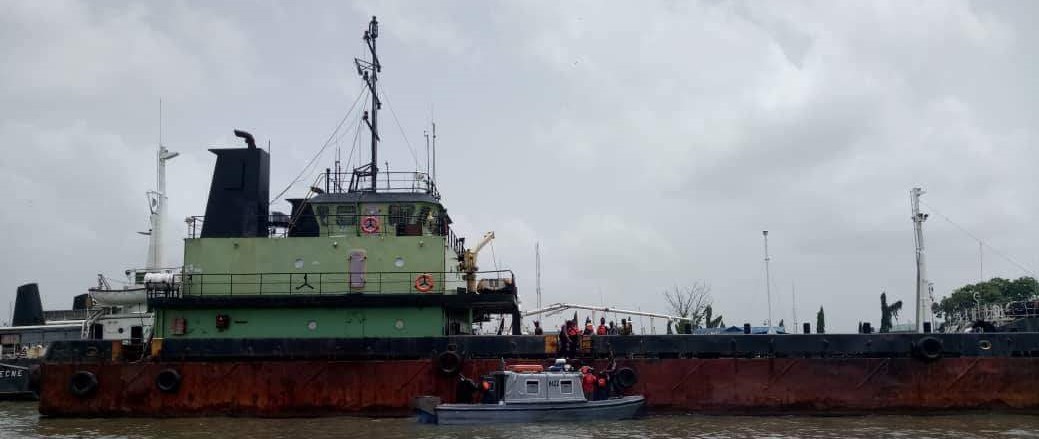The Federal Government on Monday gave ship owners operating on Nigeria’s waterways a three-month deadline to settle their decade-long accumulated taxes to the tune of millions of dollars.
The government has threatened to bar the ship owners from operating in the country’s ports if they failed to comply with the settlement of the taxes from 2010 to 2019.
Each vessel is owing between $400,000 and $1.1 million, according to the demand notices served by the Federal Inland Revenue Service (FIRS), Persecondnews reports.
The Presidential Adviser on Revenue, Dr Zachaeus Adedeji, disclosed this to State House correspondents after meeting with President Bola Tinubu and the representatives of the vessel owners at the Presidential Villa.
Adedeji said the government had given the vessels owners a window of three months to pay up the taxes.
“We have now resolved within ourselves to settle this issue as quickly as possible just to make sure that we don’t affect the flow of the products in and outside the country.
“We also made it clear that Nigeria will not accept any blackmail by defaulters, who are not complying with our laws. We have laws and they must be respected and obeyed.
“However, we will not detain or arrest any defaulting ship or vessel because this is what is causing panic. We have sent them demand notices and they have also come and the agreement is that we should give them time.
“So we have agreed to set up a technical committee to resolve these issues,” he said.
According to Adedeji, an interactive session has been held with the stakeholders — oil and gas regulators, Nigeria National Petroleum Company Ltd, the Federal Inland Revenue and the Presidency.
The Special Adviser on Revenue and the Special Adviser on Energy represented the government and all the parties have agreed to resolve the issue of outstanding taxes.
Adedeji explained:”There was demand notice, which was issued to the vessel owners or chattered, as it were, which is in accordance with the Nigerian tax law, that they should remit the tax deal to them for the last 10 years and that there were concerns about the timing of compliance or afraid of the enforcement.
“The Technical Committee will comprise of the regulator, which is NUPRC, NMDRA, NNPC, FIRS, and the Presidency, in the Office of Chief of Staff, SA Energy and SA Revenue and the Secretariat is at the Federal Inland Revenue.”
The technical committee, he said, is expected to look at the concerns raised and reconcile the backlog of taxes and ensure compliance going forward.
“Nigeria is open for business and remains business friendly as could be seen from the actions and pronouncements of Mr President.
“We are open, but that is not to say that anybody will take advantage of the country. We have the laws and the laws must be respected.”
In another development, six oli companies have been given approvals to import petroleum products in July, 2023.
Announcing this at the Presidential Villa, Abuja, the Managing Director of Nigeria Midstream and Downstream Petroleum Regulatory Authority (NMDRA), Mr Farouk Ahmed, said apart from the six companies, several others have also applied for permit to import petrol.
Ahmed described as untrue a report that NNPCL has given Dangote Group permit to import petrol.
“There are several companies that applied for fuel importation permit. So, you can apply for importation to get access to the port. And by the way, we are open to all those who are interested in importing.
“We have guidelines which are not very stringent because we are trying to encourage importation.
“There are six companies who said they want to import fuel in July. Of course, all the others may import in December in November, or anytime but those who expressed interest to bring in fuel in July there were six of them as of this morning.
“The beauty of it is that there are interests which means that they have been able to have access to foreign exchange in order to import.
“Now, as we go along, of course, we will be briefing you on the progress or the achievements so far, but the important thing is that NNPC has 30 days fuel sufficiency.
“So, we do not anticipate any gap in supply or in distribution,” NMDRA MD said.























Leave a comment